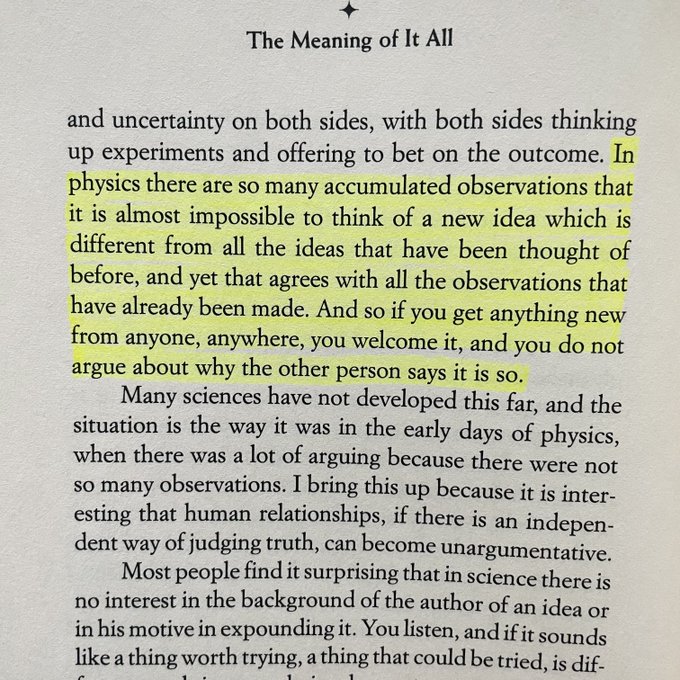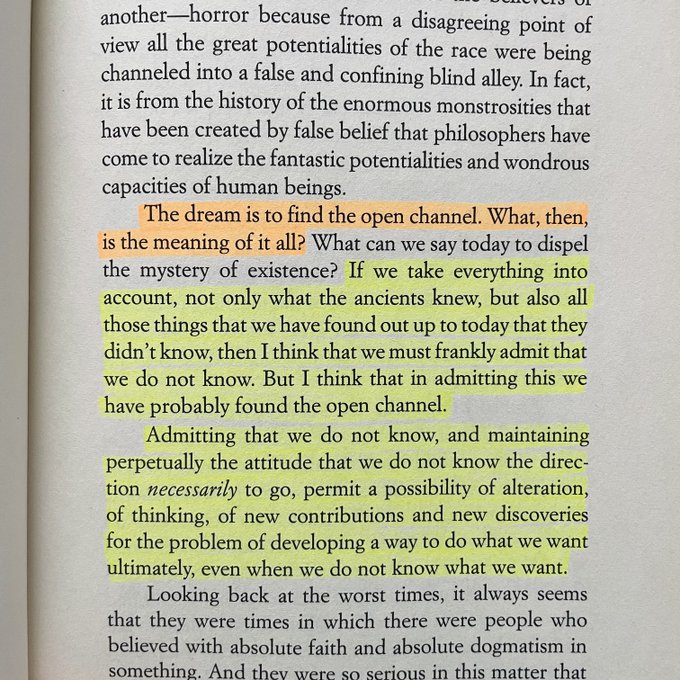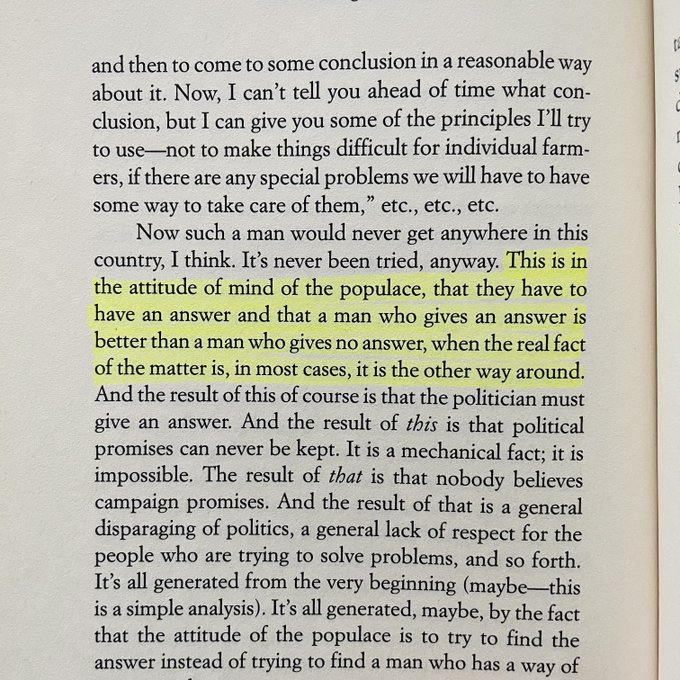“The Meaning of It All by Richard Feynman” This book is based upon three part lecture series, Prof Feynman delivered at the University of Washington (Seattle) in April 1963. Very enlightening, reflective and original. Wonderful Stuff! 15 insightful wisdom from the book 🧵
1) In these days of specialization, there are too few people who have such a deep understanding of two departments of our knowledge that they do not make fools of themselves in one or the other. (Claim made in 1963!)
2) There are new generations born every day. Because there are great ideas developed in the history of man, and these ideas do not last unless they are passed PURPOSELY and CLEARLY from generation to generation.
3) Is science of any value? A power to do something is of value. Whether the result is a good thing or a bad thing depends on how it is used, but the power is a value.
4) You cannot understand science and its relation to anything else unless you understand and appreciate the great adventure of our time.
5) Trying to understand the way nature works involves a most terrible test of human reasoning ability.
6) If there is an exception to any rule, if it can be proved by observation, that rule is wrong.
7) Welcome any new idea.
8) To solve any problem that has never been solved before, you have to leave the door to the unknown ajar. You have to permit the possibility that you do not have it exactly right. Otherwise, if you have made up your mind already, you might not solve it.
9) Doubt is not to be feared, but that it is to be welcomed as the possibility of a new potential for human beings.
10) Throughout all the ages, men have been trying to fathom the meaning of life. They realize that if some direction or some meaning could be given to the whole thing, to our actions, then great human forces would be unleashed. The dream is to find the open channel.
11) Hope for freedom for future generations - freedom to doubt, to develop, to continue the adventure of finding out new ways of doing things, of solving problems.
12) No government has the right to decide on the truth of scientific principles, nor to prescribe in any way the character of the questions investigated. It has a duty to its citizens to maintain the freedom, to let those citizens contribute to the further adventure and the development of human race.
13) This is the attitude of mind of the populace, that they have to have an answer and that a man who gives an answer is better than a man who gives no answer. When the real fact of the matter is, in most cases, it is the other way around.
14) You can't prove anything by one occurrence, or two occurrences, and so on. Everything has to be checked out very carefully. Otherwise you become one of these people who believe all kinds of crazy stuff and don't understand the world they're in. People don't realize how difficult it is to get the accuracy high. For only 1 or 2 percent you need 10,000 tries.
15) How do you get new ideas?
Thank you for going through the thread. Follow me at @readswithravi for more book learning, reviews, lessons and recommendations. Teach or share with others what you learn, that's how we grow. Retweet the first tweet so you can share it with others. https://x.com/readswithravi/st...















